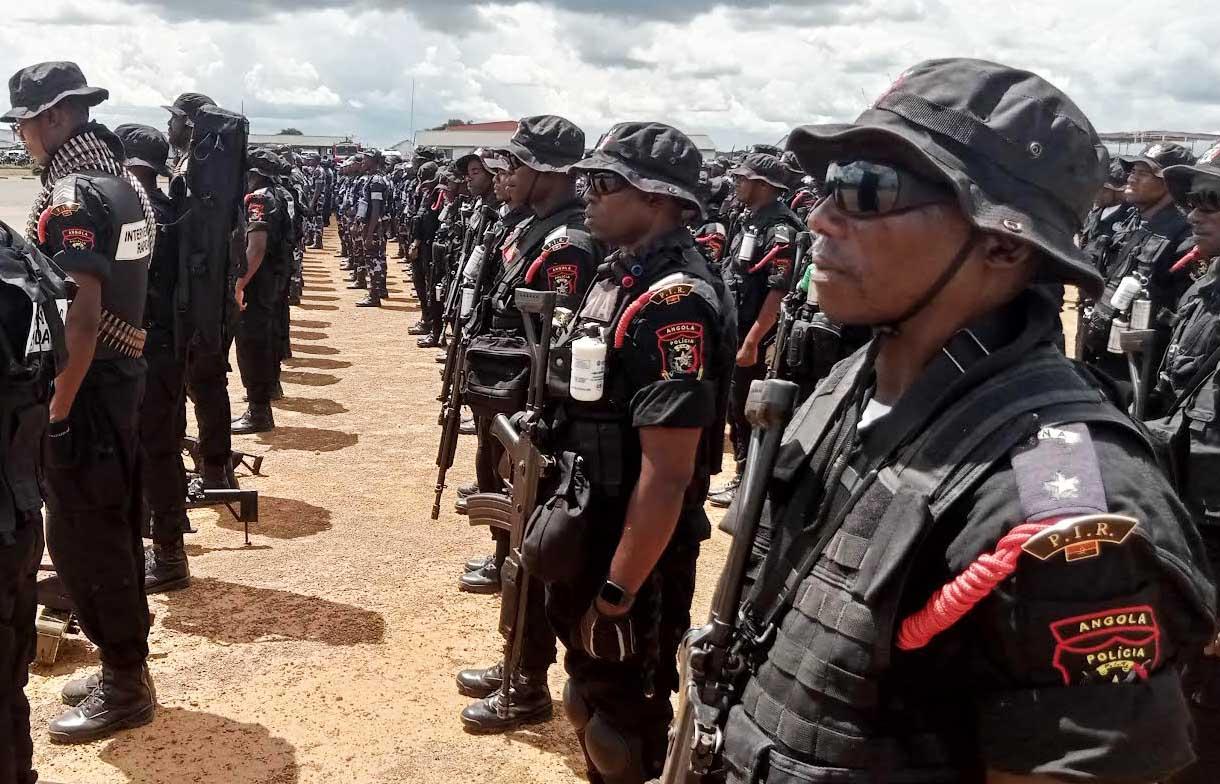Africa-Press – Angola. More than 30 members of staff from the Ministry of the Interior (MININT) delegation in Cuando Cubango have been participating, in the capital of the province, Menongue, in a training session on “Humanitarian Dimensions of Migration”, aiming to improve the performance of these phenomena.
In the training, lasting three days and carried out by the Human Rights Commissions of the National Police of Angola and the International Organization for Migration, officers from the provincial command of the National Police (PN), the Border Guard Police and the Migration Service and Foreigners (SME).
For three days, participants will address topics on the human rights of migrants, international, regional and national instruments, on human rights in mixed migratory flows and the participation of the PN provincial command in guaranteeing migratory rights.
Trafficking in human beings and smuggling and identification of existing tools to combat them, context of the mixed migration flow in Angola, profile of vulnerable migrants in migratory flows and factors attracting and driving migration, study of needs and fundamental principles of assistance to migrants, are included, among others, in the themes.
At the opening of the seminar, the 2nd commander of the National Police in Cuando Cubango, deputy commissioner Joaquim Manuel Pereira, said that the training follows others already carried out by the human rights commissions of the National Police of Angola and centrally coordinated Sovereignty Bodies.
As stated, the strategy is part of its training and information policy for those involved in the sectors of migrants’ rights, with the aim of creating an environment conducive to the development of the public security system.
According to the deputy commissioner, this vision also reflects the concern of the PN human rights commission in Angola, with the need to invest in the dynamization and growth of this sector, to serve as an important driver in monitoring and preserving the rights of migrants.
In her intervention, the representative of the International Organization for Migration IOM), Cláudia Víctor, expressed gratitude to the Angolan government in addressing issues related to the humanitarian dimensions of migration, at a time when it is proven that Angola is, a transit country and destinations of immigrants from different continents.
According to the representative, so far people have come from different regions of Africa, Asia, Europe and even America, where many seek to certify their businesses, look for job opportunities and others find homes, facing many challenges during their communication and violated human rights, among other evils.
Recognized that humanitarian actions for migration aim to save lives, alleviate suffering, maintain and protect human dignity, during and after man-made crises and natural disasters, as well as prevent and strengthen preparedness for the occurrence of such situations.
Cláudia Víctor highlighted that, in collaboration with the Angolan government and based on the sequence of other trainings carried out in Luanda and Moxico, in 2023, the IOM in Angola, within the scope of the African Regional Plan for Migration, financed by the Office of Migration and Refugees in the United States of America, reaffirmed the continuous training of officers of the General Command of the National Police throughout this year.
Therefore, the person responsible maintained, the provinces of Cuando Cubango and Lunda Norte were chosen for the exchange of experience, with the aim of strengthening and training officers, to better understand and act on their migratory role.
He assured that the training will be an interactive meeting where valuable experiences, good practices, difficulties and solutions relating to the subject areas in question will be shared, where different topics will be validated, mainly in the continuity of supporting the Angolan government in the design of strong programs migration process and its components.
He stated that the IOM, with these trainings, seeks to reinforce the coordination of interested parties in humanitarian management, human trafficking, climate disasters, creation of support mechanisms and policies, training and cross-border forums, given the fact that it is possible to have borders and well-organized cities, treat migrants who, due to adverse situations and imminent dangers, seek protection and security in Angolan territory.
For More News And Analysis About Angola Follow Africa-Press






